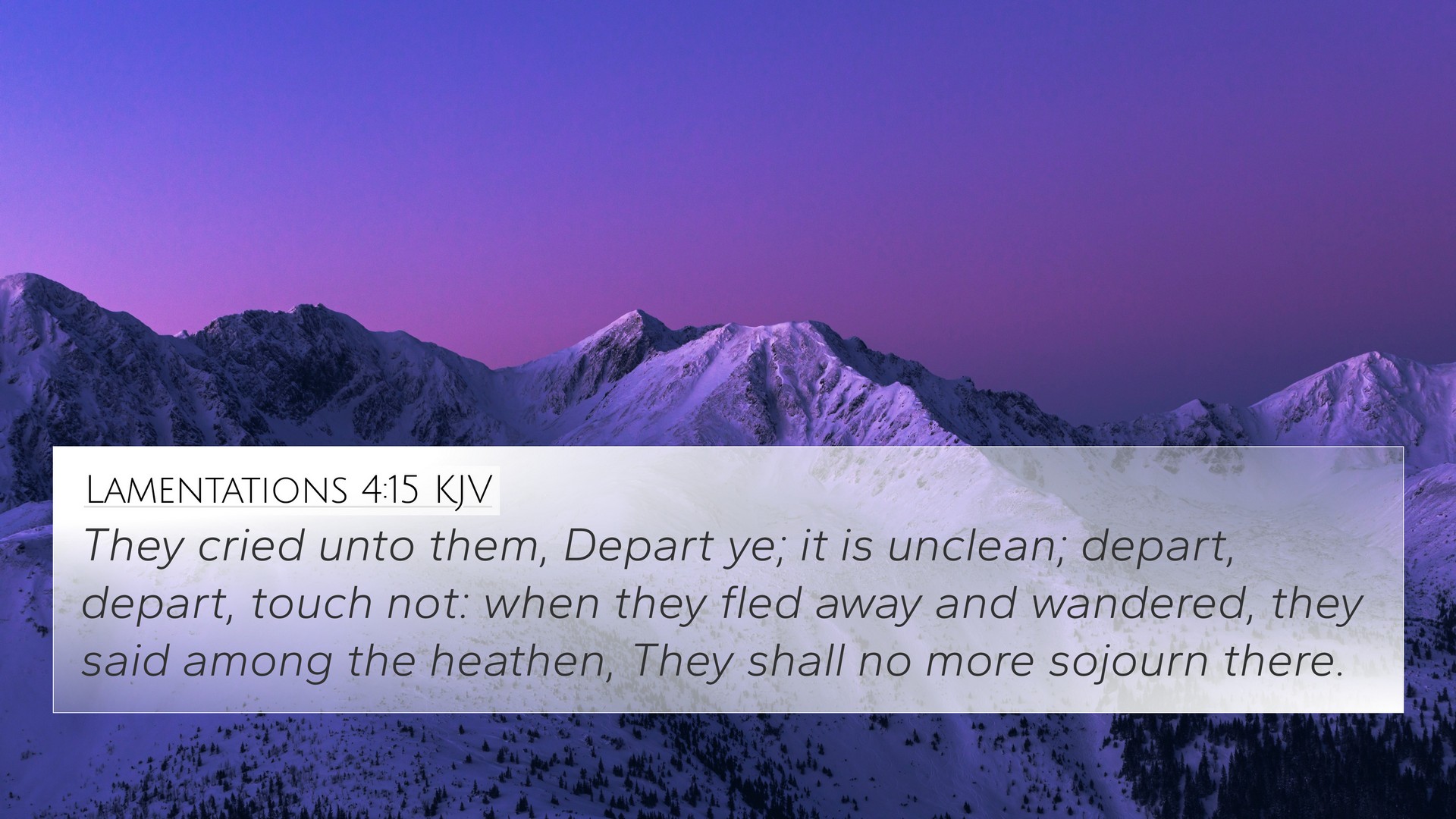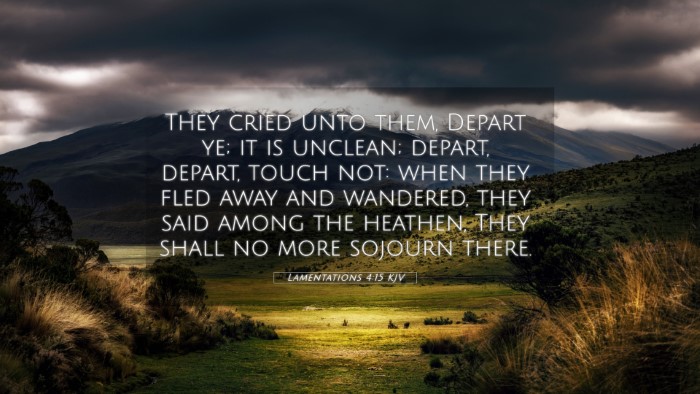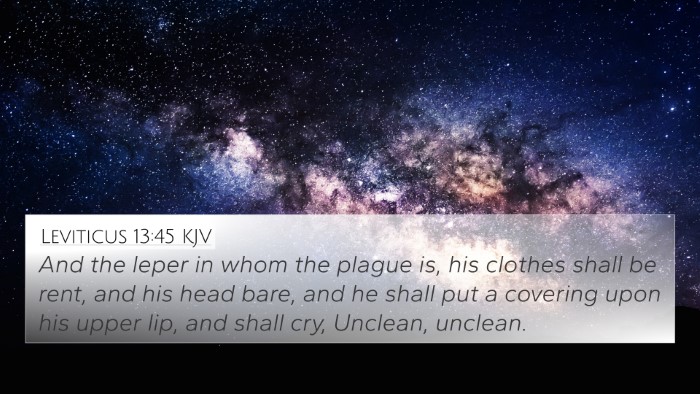Lamentations 4:15 - Interpretation and Meaning
Bible Verse: "They cried to them, 'Depart; you are unclean! Go away! Go away! Do not touch us!' When they fled and wandered, people among the nations said, 'They shall no longer sojourn here.'" (Lamentations 4:15, ESV)
Overview and Context
The book of Lamentations reflects the sorrowful aftermath of the fall of Jerusalem. In Lamentations 4, the author details the desolation and plight of the people of Judah following their exile and the destruction of their city. The verse particularly highlights the social and spiritual alienation experienced by the inhabitants as a consequence of sin and disobedience to God.
Insights from Public Domain Commentaries
Matthew Henry's Commentary
Matthew Henry notes that this verse depicts a state of disgrace and ostracism that has befallen the people of Jerusalem. They are viewed as unclean by others, leading to a paramount sense of alienation. This reflects God's judgment and the consequences of unfaithfulness, manifesting in a broken community where the once revered are now shunned.
Albert Barnes' Commentary
Albert Barnes emphasizes that the verse illustrates the total rejection faced by the people during this period. The cry of the individuals, “Depart, you are unclean!” signifies a profound humiliation. The nations surrounding them recognize their disgrace and declare that they can no longer dwell among them, demonstrating how sin leads to physical and spiritual separation from both God and humanity.
Adam Clarke's Commentary
Adam Clarke highlights the psychological impact of this ostracism on the survivors of the calamity. The verse showcases the depth of despair and hopelessness as these individuals are dehumanized and are forced to wander. Clarke also draws connections to Levitical laws concerning uncleanness, emphasizing that such spiritual realities often come with dire physical consequences in the lives of God's people.
Thematic Connections and Cross-Referencing
The lament captured in this verse resonates with various other scriptures that explore themes of isolation, judgment, and redemption. Below are key cross-references that illuminate a deeper understanding of Lamentations 4:15 through thematic connections:
- Isaiah 64:6: "We have all become like one who is unclean, and all our righteous deeds are like a polluted garment." - This verse complements the idea of being deemed unclean amidst societal rejection.
- Ezekiel 22:15-16: God's promise to scatter His people among the nations reflects the physical separation and judgment described in Lamentations.
- Jeremiah 30:17: "For I will restore health to you, and your wounds I will heal, declares the Lord." - Here, a promise of restoration contrasts the current desolation.
- Micah 7:10: "Then my enemy will see it, and shame will cover her who said to me, 'Where is the Lord your God?'" - This verse mirrors the public shame and rejection expressed in Lamentations.
- Galatians 3:10: "For all who rely on works of the law are under a curse." - This echoes the theme of being under divine judgment due to disobedience.
- 1 Peter 2:9: "But you are a chosen race, a royal priesthood, a holy nation..." - A contrast between being chosen and being rejected highlights the pain of loss of identity due to sin.
- Luke 17:12-14: The interaction of Jesus with the ten lepers, showcasing social ostracism due to uncleanness parallels with the experience of those in Lamentations.
Conclusion
This verse from Lamentations encapsulates the profound sorrow and alienation resulting from sin. Through careful cross-referencing and thematic exploration, one can see the overarching message of need for redemption and the hope of restoration echoed throughout the Scriptures. Understanding Lamentations 4:15 not only requires looking at the immediate context but also involves a broader examination of related scriptures that discuss the consequences of sin and the path toward restoration.
Additional Study Resources
If you wish to delve deeper into cross-referencing and exploring biblical connections, consider utilizing Bible concordances, Bible cross-reference guides, and other Bible reference resources. These tools can greatly enhance your understanding of the intricate relationships between various scriptures and themes within the Bible.



